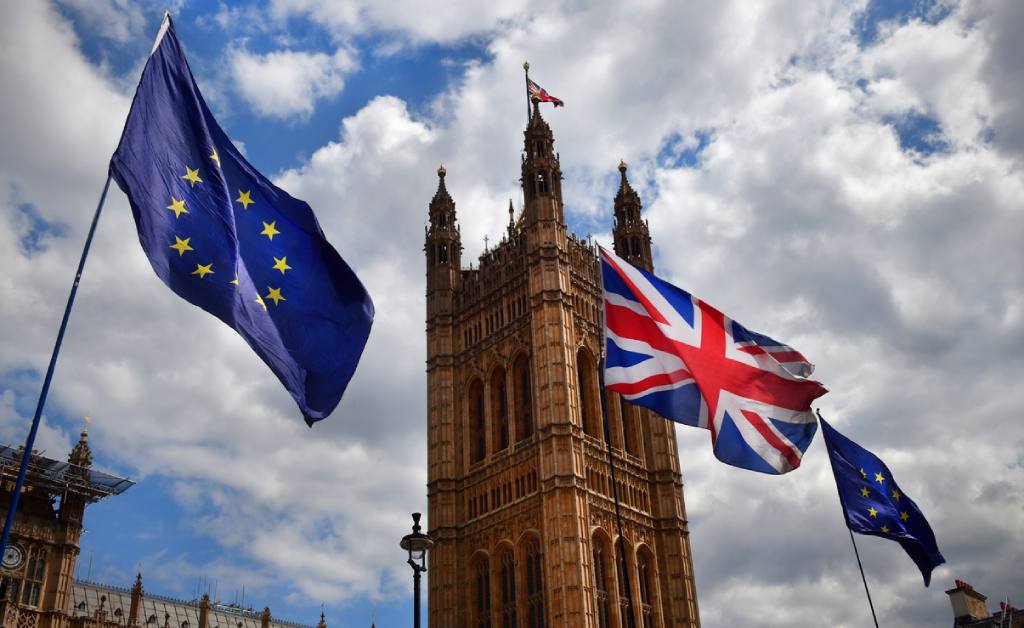
IESE Insight
Brexit blues: assessing the fallout
Is Brexit as bad as the markets' moves seem to suggest? Who will be most affected? What might the future relationship between the EU and the U.K. look like? Here we share two economists' views on what is happening and what happens next.
After Britons' surprising vote to leave the European Union, the only thing certain about the upcoming months is the uncertainty. How much will the U.K.'s economy be affected? And what about other EU members? What kind of trading relationship will the U.K. have with Europe post-Brexit?
The bad news first
Speaking just a few days after the referendum was held, professor of economics Núria Mas predicts that this uncertainty will probably slow down investment in the U.K. and dampen Britons' spending. In other words, a recession is looming. Furthermore, the already hard-hit pound "is likely to depreciate even more in the next coming weeks."
Looking further ahead, the financial sector, which makes up 7 percent of U.K. GDP, stands to suffer if U.K.-based banks lose their financial "passport" allowing them to offer their services across the EU. "This could have quite a substantial negative impact for the City of London," Mas notes.
Understanding the push
With financial fallout deemed likely, the popularity of Brexit might seem odd. Fellow professor of economics Pedro Videla offers his view: Brexit was not about the economy, but about democracy. He says: "The startling results of Brexit indicate that voters were swayed not by cool calculations of costs and benefits, but rather by their perception of the European project as a whole." And their perception was very negative, with Brussels-based leadership seen as "a self-perpetuating elite" and their project as "undemocratic."
In Videla's explanation, European leaders fed British discontent by failing to improve the current economic landscape, failing to resolve the situation in Greece ("we don't know if they'll allow Greece to go bankrupt this summer," he notes), and failing to adequately address the migrant crisis.
Possible exit scenarios
Part of the cause for so much uncertainty is that even Brexiteers don't know what the secession will look like. What exit models are there? And how might they shape the future relationship between the U.K. and the EU?
Professor Núria Mas warns that the future greatly depends on the negotiations that will officially start once the U.K. invokes Article 50 of the Lisbon treaty — a required step to leave the union. Article 50 provisions are vague, but one concrete detail is that negotiators have two years to conclude with new arrangements — "unless the European Council . . . unanimously decides to extend this period."
Mas and Videla look to agreements that the EU currently has with other countries as possible models.
EEA?
One alternative might be signing on to the European Economic Area (EEA), like Norway, Iceland and Liechtenstein. But, as Pedro Videla notes: "the EEA members are obligated to contribute to the EU budget, accept the freedom of movement of EU nationals, and observe all of the EU's single-market regulations while having no say in them. Brexiteers will naturally hate these stipulations and ask, 'What was the point of the referendum?'"
In addition, Videla remarks that joining the EEA with favorable terms to the U.K. won't be easy, as that would "send a negative signal to countries that might be toying with the idea of leaving, as well as EU regions interested in gaining independence."
Other models
Switzerland offers another model, as part of the European Free Trade Area (EFTA), which bilaterally negotiates access to the EU's single market on a sector-by-sector basis. Turkey, meanwhile, is part of the EU Customs Union, which entails tariffs on exports to the EU in sectors such as services. Canada has an agreement with the EU that gradually eliminates tariffs on most exports — but, crucially, leaves out financial services. Then there's Mexico or South Korea, which have free trade agreements that allow unfettered access to the EU internal market for goods — but not services.
If none of these models satisfies both parties, the U.K. might have to settle for membership in the World Trade Organization (WTO). "This would free the U.K. from following the EU standards and regulation, but it will imply that it is out of the single market," Mas explains. With WTO membership, most exports are afforded low rates, but exceptions include car parts (a key U.K. export), agriculture and services.
For Mas, the most likely scenario is that the U.K. will "end up having some access to the EU single market, but with important exceptions — such as the financial passport." She believes that the EU would only grant this passport in exchange for the U.K.'s making its own controversial concessions, such as payments to the EU budget or some agreements on labor mobility.
Negotiators should choose their course wisely, as Videla notes leaving the EU "will also be irreversible: the U.K. will not be granted the choice to rejoin."
A wider view
Of the remaining 27 EU members, those most affected by Brexit might be Ireland and the Netherlands, whose U.K. trade comes to 11.8 percent and 7.5 percent of their own GDPs, respectively.
In any case, Mas hopes the U.K. and the rest of the EU "keep in mind the goal of trying to find the best possible solution for the long-run welfare for the population."
That may take a good long time.
For more IESE professors' thoughts and analyses, see: "Spotlight on Brexit" (IESE blog network).
